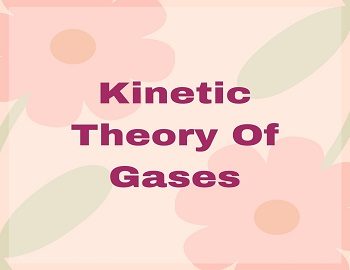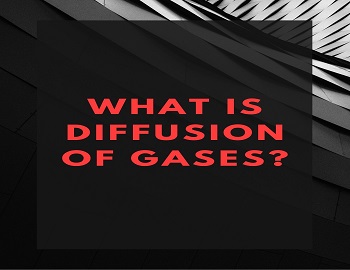Postulates of Kinetic Theory Of Gases:
To explain the various gas laws, a theoretical model was proposed which takes into account the molecular concept as well as the kinetic concept of gas molecules. This theoretical model was put forward by Bernoulli and was further developed by Clausius, Maxwell, Boltzmann and others in 1857 is known as the kinetic molecular theory of gases. Also known as Dynamic particle model and Microscopic model of the gas. The main postulates of the theory are as under-
- All gases are made up of a very large number of small particles called molecules.
- Gas molecules do not attract each other appreciably.
- Molecules are separated from each other by large spaces so that actual volume occupied by the molecules is negligible as compared to the total volume of gas.
- Molecules are not at rest but possess rapid random motion.
- During motion, they collide with each other and also with the walls of the container.
- The collisions are perfectly elastic i.e. there is no loss or gain of kinetic energy.
- At any moment, different molecules possess different velocities and hence different energy.
- The average kinetic energy of molecules is directly proportional to the Absolute temperature i.e. K.E. = 3/2 RT or K.E. = 3/2 kT. Where R = Gas Constant, k = Boltzmann Constant.
- Difference between Sigma and Pi Bond
- Uses of Alkanes Alkenes and Alkynes
- What is Crystal Lattice and Unit Cell?
- Magnetic Properties of Solids
- Electrical Properties of Solids
- Atoms, Molecules and Chemical Arithmetic– NIOS









Comments (No)